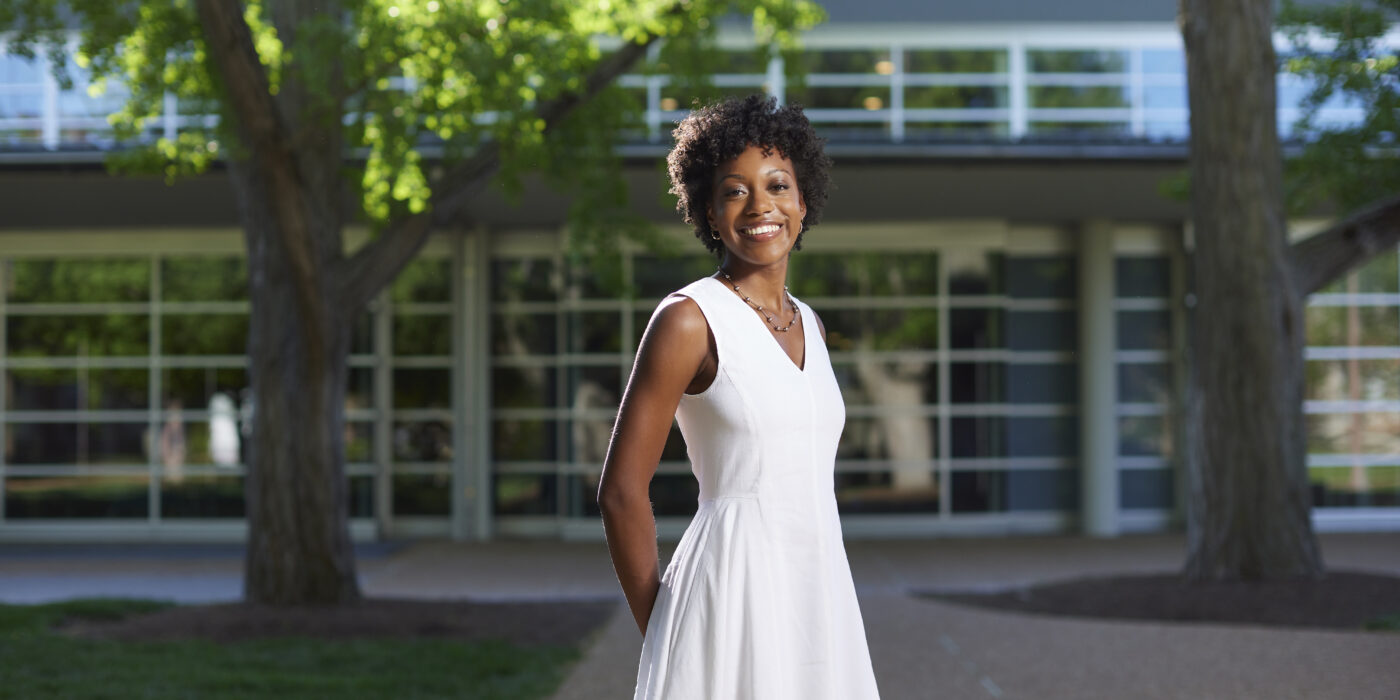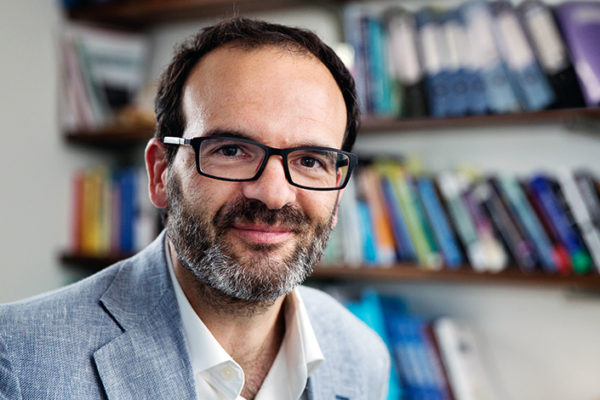Jewel Evans has a passion for equity-based urban planning. Her goal is to create equitable land use policies that can positively impact disenfranchised populations.
“What I’ve learned in my time at WashU is that all people — regardless of race, socioeconomic class or any other factor — have the right to a safe and clean environment,” Evans said. “We all have the right to systems, policies and governmental structures that work to create that environment for us. Systems should be working on behalf of all people, and specifically marginalized people, to create a clean, safe, enjoyable environment that prioritizes their health and their needs.”
Evans, from West Bloomfield, Mich., is part of the Brown School’s 3-2 program, through which she earned her undergraduate degree and is now set to earn her master’s degree in public health in a total of five years. Her undergraduate degree was in anthropology, with a concentration in global health and the environment, from Arts & Sciences, and her master’s degree has a concentration in urban design. She is also a proud Ervin Scholar.
What drove you to study urban design?
Like many undergraduate students here, I initially thought I was going to be pre-med. I was not very familiar with anthropology when I started at WashU, but I knew it had a public health aspect to it, which appealed to me. As I got more into the environmental-focused classes, I learned what environmental justice was. Then I started learning about land sovereignty and indigenous systems of knowledge and other ways of thinking that are focused on the natural environment. That led to learning about the built environment and who has access to which resources. It’s so amazing that the Brown School has an urban planning specialization because it lets students explore urban planning and public health in tandem with each other.
How has being in St. Louis impacted your world view?
St. Louis is very similar to Detroit, which is close to my hometown. Being involved with the Interdisciplinary Environmental Clinic in the School of Law has given me a great opportunity to be able to work directly with the community here. I’ve been able to get to know the city and the patterns of housing and urban design that are impacting people who are literally my neighbors. Working with the clinic, I conducted a number of interviews with community members for a project that was looking at vacant buildings in north St. Louis. It gave me a greater understanding of what it means to do community-based work and how invaluable community feedback is in any sort of development project or plan.
What are you doing after graduation?
I’ve accepted a position as a research analyst with HR&A in New York City. I did my practicum there. HR&A is a firm that works in urban development and affordable housing. I’ll have an opportunity to work on a wide variety of projects, expanding on the work I did in my practicum, including work on anti-eviction policy, equitable urban development and working with the community. Urban planning is messy and there are never any easy solutions, but that’s what I love about it. I really enjoy working directly with members of the community to address these very complex issues.



